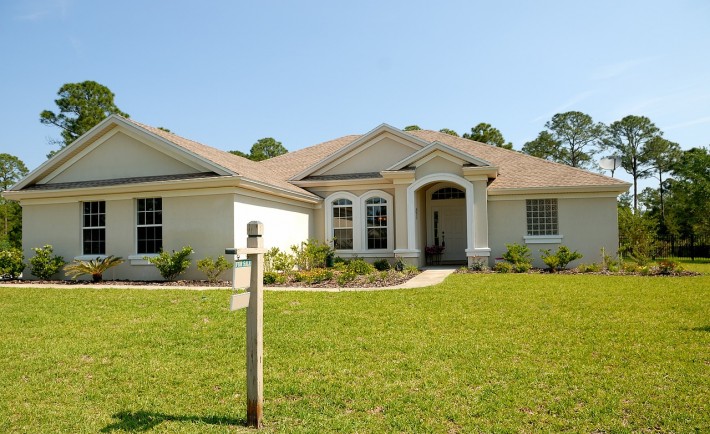
“Buy them pre-built or customize the floorplan?” That question is one of the most compelling aspects of a new home purchase for many people in Canada. It’s a choice that comes with complications including cost and terms associated with building your own home.
To determine which option is most advantageous for most, this guide delves into various facets of pre-constructed home purchases processes and their influence on buyers in Canada, most especially Ontario.
Taking Advantage of the Pre-Construction Process
One distinct feature of pre-constructed homes is the opportunity for buyers to deposit smalldown paymentsin early project phases and watch them appreciate over time. Individuals who purchased such buildings back then have seen these structures risen in value.
Intending buyers are encouraged to invest futuristically by purchasing newly pre-constructed homes that will appreciate some years from now, provided that the Canadian real estate market continues to expand.
Most of these residential homes are developed in the Canadian suburbs where competition is low. Is this a significant factor? Of course. These homes are more likely to be situated on larger lots and have increased living space, compared to earlier residential structures. But there is more.
Buyers don’t have to compete aggressively in bidding wars as seen in urban housing markets in locations like Montreal, Greater Toronto Area, Greater Vancouver Area, and Calgary. But before venturing on a hunt for pre-construction homes, take some precautionary measures to prevent unforeseen issues.
Understand Legal Requirements and Purchase Agreements
As with other building types, pre-construction homes come with legally binding agreements, which both parties must honour. On the surface, these agreements appear harmless and mouth-watering. However, upon closer study, some unfavourable provisions may be lurking in the fine print.
Signing such contracts on the spur of the moment without reading the fine print may lock the buyer in a never-ending cycle of disparaging commitments, most of which would be financial. In Ontario, buyers can wait within a stipulated timeframe to ascertain their decision to sign the contract.
This duration is commonly referred to as the “cooling-off” period, which is a legal obligation. The province also mandates warranty coverage on pre-construction homes, which buyers can leverage to ensure that they are not receiving a terrible bargain.
A buyer would also need to sign a purchase agreement with the builder. This legal document is a prerequisite to claiming full ownership of the pre-construction home and it comes with the Tarion Addendum, which comprises:
- The Addendum — Documentation showing the critical dates
- The Purchase Agreement — Purchase and sale agreement forms
Before signing the agreement, the buyer should seek legal advice from a lawyer to ensure that the transaction is fair and that the buyer is protected legally against potential difficulties.
Know More About the Pre-Construction Builder
Finding out more about a home builder is one method to guarantee that a pre-construction property does not come with any unlawful baggage. One way to do that is to use the Ontario Builder Directory (OBD).
OBD is an online database that provides detailed information about home builders in Ontario, including probable convictions for unlawful construction projects. Potential buyers can use this resource to figure which builder to consult.
Reputable builders in Ontario are licensed to construct new residential structures. They also have a track record of previous homes they’ve built, as well as genuine testimonials to back up their work.
Explore the Warranty Coverage
As previously noted, Ontario legislation provides for warranties on new houses. This coverage is available in a variety of warranties (one, two, and seven years) and caters to:
- Materials
- Workmanship
- Defects
- Ontario Building Code violations
- Water penetration, and many more
Keep an eye on hidden costs
Charges may appear out of nowhere, leaving the homeowner perplexed. Purchasers may be unaware of them until a few days before closing. In certain circumstances, the fees might be as much as 6% of the initial purchase price.
To be cautious, purchasers should enquire about additional fees and create a budget to avoid unexpected expenditures such as development fees, utility installation fees, and the rest. The maximum charge should ideally be 2% of the purchase price.
Anticipate Pre-Delivery Inspection (PDI)
During the construction process, the builder will invite the buyer over to inspect the home. This is to ensure that the building meets the client’s requirements and satisfaction.In case of an unusually large project, or as a part of the pre-delivery inspection and acceptance, some aspects of the building may be examined.
The builder may furnish the buyer with detailed data in respect of the plumbers, electricians, plasterers, tiler, drainage consultant, roofing company, and other professionals, as part of the pre-delivery inspection and acceptance process. As a tip, buyers can review the PDI checklist available online to know what to examine when on a PDI.
A month before the warranty expiration highlighted in the Addendum, the buyer can conduct a second inspection. Why is this necessary? It is advisable to give the pre-construction building time to settle over the course of varying seasons.
As a result, the customer will be able to assess the structure’s performance under various situations. During this time, possible flaws in the construction may begin to show up. After the second inspection, the buyer can decide whether or not to proceed with the deal.
If Unsatisfied, Get a Real Estate Broker
Working with a real estate broker or agent, particularly one who is familiar with pre-construction properties, expedites the transaction process and guarantees a decent bargain. In most cases, house buyers are only shown model homes to get a sense of what the finished construction will look like.
Real estate brokers, on the other hand, are familiar with the ins and outs of pre-construction developments as a result of their relationships with developers and builders. What exactly does this imply? Builders and developers frequently hire real estate agents to represent them. They are, in other words, the sellers’ agents.
As a result, these professionals work in the best interests of their clients, not the buyer. They guarantee that the builders receive the best deal possible by offering pre-constructed homes at premium prices. It is then in the best interests of house purchasers to choose real estate agents who will represent their interests.
In Conclusion
Most Canadians spend a lot of money on a new house and then find out that’s not the one for them. Before buying a pre-construction house have an experienced broker or agent with a large network to strike a good bargain. A lawyer will come in handy as well. Finding the ideal agent and lawyer may necessitate an extensive search, but the outcomes are rewarding.




